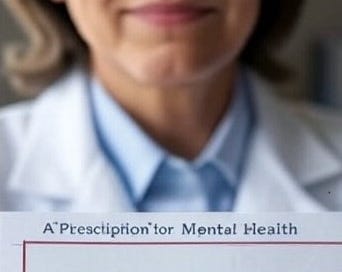The Surprising But Proven "Medicine" for Mental Health
When focusing on "building happiness", mental suffering may recede....
In my “preaching” of the benefits from building happiness, I often encounter questions like this:
“How can we work on happiness while suffering mental health problems? “
Or even: “Wouldn’t it be insensitive to talk about happiness in front of people suffering mental health issues?”
These are reasonable questions or concerns. But they appeared to be based on an assumption: Happiness and mental suffering are the opposite of each other; when you have one, you wouldn’t have the other.
This assumption is revealed by research as being overly simplified, or a misunderstanding of the relationship of happiness and mental suffering.
Actually, they are NOT simply opposites; research showed that they have relative independence from each other.
As noted in my post, “Is Happiness the “Cessation” of Pain?”:
“[Psychological suffering and happiness] can co-exist and they affect people in different ways, not just in opposing ways.”
.
For example, while suffering mental health issues, you may still have positive emotions (however weak, or fleeting, or hidden down deep they might be) inside you, and you could build on that.
AND building on that, or building happiness “from scratch”, can be a powerful “medicine” to fight against mental health problems!
.
.
A meta-analysis (that is., analysis of many studies on a particular topic to get combined insights) found that happiness practices (e.g., gratitude exercises, acts of kindness including kindness to oneself) increase mental well-being and reduce anxiety and depressive symptoms.
Another meta-analysis of 51 studies on positive practices (e.g., gratitude, hobbies) found significant anxiety reduction, particularly in clinical populations.
Note that clinical populations are people truly suffering! Yet, they significantly benefited from these positive practices, that is, practices for building happiness.
One of my own studies went even further, indicating that Subjective Well-being (i.e., happiness) at baseline reduced mental health related mortality for nearly 30 years:
.
Given the power of this approach that might having been overlooked by many people, and in honor of this May Mental Health Awareness Month, I heartedly call for my dear readers, suffering mental health problems or otherwise, join us in building happiness for reducing mental suffering/enhancing mental health!!
And share to benefit others!





